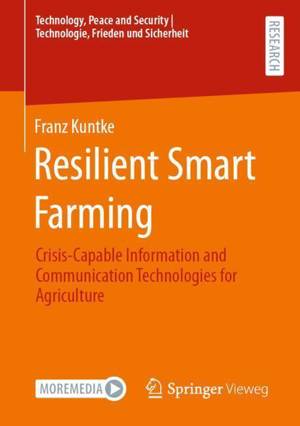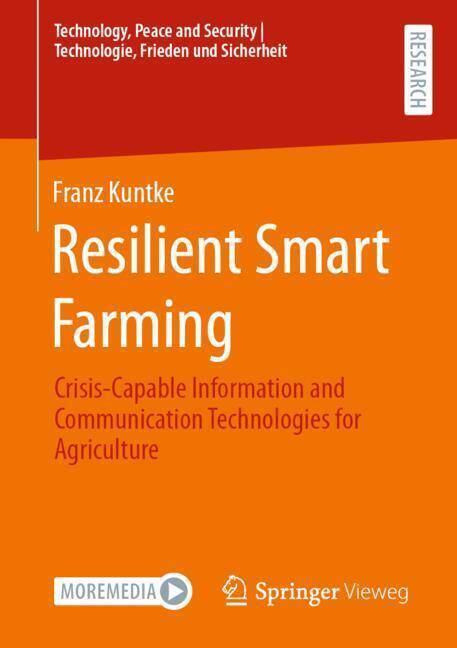
- Afhalen na 1 uur in een winkel met voorraad
- Gratis thuislevering in België vanaf € 30
- Ruim aanbod met 7 miljoen producten
- Afhalen na 1 uur in een winkel met voorraad
- Gratis thuislevering in België vanaf € 30
- Ruim aanbod met 7 miljoen producten
Zoeken
Resilient Smart Farming
Crisis-Capable Information and Communication Technologies for Agriculture
Franz Kuntke
€ 117,95
+ 235 punten
Omschrijving
Like many sectors, agriculture is experiencing a continuous digitalization, i.e. an increase in data-driven technologies used. In contrast to companies of other critical infrastructures, a typical farm is comparatively small and often runs as a family business. Accordingly, the demands on farming technology, its implementation, and regulations are different in many terms. Currently, a promising technological trend of agriculture is smart farming, that incorporates more precise cultivation with less manual effort. But such new developments usually lack an assessment about its impact on the sector's resilience and dependencies on other infrastructures. It remains unclear, how digitalization impacts the resilience of food production and food safety. Therefore, it is not well researched which technological developments may lead to undesired effects in the future. How modern systems should be designed to allow for both, positive impacts on efficiency, and prevention of negative effects interms of reduced resilience capacities, is also not answered by current literature. The aim of the work is to close this research gap in the interplay between agriculture, digitalization, and resilience.
Specificaties
Betrokkenen
- Auteur(s):
- Uitgeverij:
Inhoud
- Aantal bladzijden:
- 249
- Taal:
- Engels
- Reeks:
Eigenschappen
- Productcode (EAN):
- 9783658441562
- Verschijningsdatum:
- 4/05/2024
- Uitvoering:
- Paperback
- Formaat:
- Trade paperback (VS)
- Afmetingen:
- 148 mm x 210 mm
- Gewicht:
- 367 g

Alleen bij Standaard Boekhandel
+ 235 punten op je klantenkaart van Standaard Boekhandel
Beoordelingen
We publiceren alleen reviews die voldoen aan de voorwaarden voor reviews. Bekijk onze voorwaarden voor reviews.







